Last updated
Aug 1, 2024
Building a highly engaging, retaining, and converting web page is child’s play.
Said no one ever.
The amount of tasks that need to be done to create a page that both users and search engines love can be quite daunting:
Implementing web design best practices for intuitive user experience
Optimizing your content, meta titles and descriptions, and URLs to boost your rankings
Applying multiple web performance strategies to achieve fast load times and smooth interactions
Ensuring your pages are accessible and usable for people with disabilities
Leveraging conversion rate optimization techniques to multiply sales
Luckily, the rise of artificial intelligence (AI) promises to automate many webpage optimization processes.
In the following lines, you will learn more about AI-powered webpage optimization and how to leverage AI to gain a competitive edge. Furthermore, you will get a list of our top AI tools for ecommerce and beyond to add to your strategy in 2026.
What is AI-powered webpage optimization?
AI webpage optimization leverages machine learning and predictive algorithms to enhance site performance. It improves speed, SEO rankings, and user experience by analyzing user behavior and automating tasks like content personalization, keyword optimization, and layout adjustments.
This approach leverages different technologies, such as machine learning (ML), natural language processing (NLP), and AI algorithms, to analyze vast amounts of data, predict user behavior, and automate optimization processes.
By doing so, AI identifies the most effective strategies for improving page load times, ensuring content relevance for search engines, and enhancing web design for optimal user engagement and accessibility.
Unlike traditional optimization methods that often rely on manual testing, best guesses, and a one-size-fits-all approach, AI continuously analyzes user interaction data so it can:
anticipate user needs
adapt to changing user behaviors
and predict future trends
Moreover, AI's ability to learn and adapt makes it a significant advancement over traditional techniques. This is one of the main reasons thousands of companies have already incorporated it into their business strategies.
“Global AI adoption by organizations is set to expand at a compound annual growth rate (CAGR) of 37.3% between 2023 and 2030.” – Grand View Research
AI tools for SEO, performance, and Core Web Vitals optimization in 2025
The AI landscape encompasses so many technologies that one can easily get lost in all the available options.
To save you some time and confusion, we narrowed down the list to the most essential ones that will immediately streamline your page optimization process. If you're curious about broader trends shaping the industry this year, check out our article: 2025 Web Performance Trends: Insights from the Experts.
1. Machine Learning
Machine Learning (ML) is a branch of AI that allows systems to learn from data, recognize patterns, and make informed decisions with minimal human guidance.
How ML can improve your page performance:
Deliver personalized content, product recommendations, and targeted promotions
Get insights into how users navigate and interact with a website
Dynamically adjust webpage content, layout, and navigation to cater to each visitor
2. Natural Language Processing (NLP)
NLP is a field of AI that focuses on enabling computers to understand, interpret, and generate human language in a way that is both valuable and meaningful. It encompasses a wide range of technologies, including text analysis, sentiment analysis, language translation, and conversational agents, to help machines read, decipher, and understand human languages in a useful manner.
How NLP can improve your page performance:
Ensure your content is relevant and engaging by analyzing its context and nuances.
Improve your on-page SEO by identifying user search intents and optimizing content accordingly.
Offer 24/7 chatbots that can provide exceptional customer service
3. Reinforcement Learning (RL)
Dynamically adjusting website layouts, content recommendations, and promotional offers based on user interactions, reinforcement learning optimizes user satisfaction and conversions.
How RL can improve your page performance:
Dynamically adjust your content and product recommendations for each user based on their interactions.
Тest different layouts, content placements, or navigation structures to showcase the ones that lead to more satisfactory user experiences.
Run complex experimentation with multiple variables simultaneously, quickly learning the most effective combinations for page elements.
4. Predictive page prerendering
Speed matters more than ever: AI-powered predictive page prerendering loads pages before a user even clicks, creating instant navigation experiences. This reduces bounce rates, improves Core Web Vitals like LCP, and enhances conversion rates - key to better SEO and happier users.
Predictive page prerendering uses AI to anticipate which pages a user will likely request next and load them in advance in the background. This technique analyzes user behavior patterns, navigation paths, and other contextual signals to make educated guesses about future actions.
How Predictive Prerendering can improve your page performance:
By loading pages before they are explicitly requested, users experience almost instantaneous page navigations
Faster page loads contribute to a smoother browsing experience, encouraging users to spend more time on the site and explore more content
A seamless and fast user experience directly impacts Core Web Vitals and your conversion rates
To learn more about optimizing Core Web Vitals, check out our article on AI-Powered Core Web Vitals Optimization: Boost Speed and Rankings
AI in action: Revolutionizing website speed, SEO, and User Experience
All the benefits and opportunities artificial intelligence optimization (AIO) offers look good on paper. But is that the case in practice?
Key Term: Artificial Intelligence Optimization (AIO) refers to using AI techniques to improve the performance, efficiency, and outcomes of various processes, systems, or tasks. It involves employing algorithms and models from machine learning, deep learning, and operational research to analyze data, predict outcomes, and make decisions that lead to a system's optimal performance.
Let’s see how AI can be applied to enhance various aspects of your pages:
AI in web performance
Although AI is yet to be fully adopted in the web performance world, its capabilities can undoubtedly reshape the way site owners and developers deal with page speed obstacles:
Code optimization: AI can examine your code to identify and remove redundancies, thus minimizing HTTP requests and prioritizing essential resources.
Image optimization: AI-driven tools can automatically resize and compress large images and videos without losing quality, tailoring them to the user's screen size and network conditions.Caching: AI technologies can enhance traditional caching methods by intelligently deciding, based on user behavior, which content to cache and for how long. This dynamic approach ensures users access the most updated content and maintains a high cache hit ratio.
Furthermore, the combination of predictive page navigation powered by AI promises to be the next big thing in web performance, considering it allows for near-instant page experiences.

Recently, Google has been focusing on improving webpage performance by leveraging advanced browser capabilities. This includes enhanced visibility and attention to the back/forward cache in PageSpeed Insights. This year, the Chrome team announced the return of full prerendering for future pages using the Speculation Rules API. Tools like Navigation AI automate the implementation of these advancements, achieving 0-second load times and delivering a seamless, frustration-free browsing experience.
AI in SEO
Identifying the right keywords, creating high-quality content, and keeping your pages fresh and updated – it would be an understatement to say that search engine optimization (SEO) is a complex and time-consuming task.
And let’s not forget about the ever-changing search engine algorithms.
Luckily, AI technologies like NLP and ML are perfect for analytical tasks like these, streamlining a lot of the SEO processes:
Enhanced Keyword Research and Strategy: AI-driven tools use advanced algorithms to conduct deep keyword research, assess keyword difficulty based on your site, and identify content gaps. This allows for more strategic content planning targeting keywords your site is likely to rank for.
Content Creation and Optimization: Generative AI tools like ChatGPT and Gemini, as well as NLP-powered solutions, are your perfect companion for generating SEO-friendly content briefs, optimizing existing content, and even creating new content designed to rank well.
Automating SEO Tasks: AI can automate repetitive SEO tasks, such as meta tag generation, internal linking, and content updates. This not only saves time but also ensures that SEO practices are consistently applied across the site.
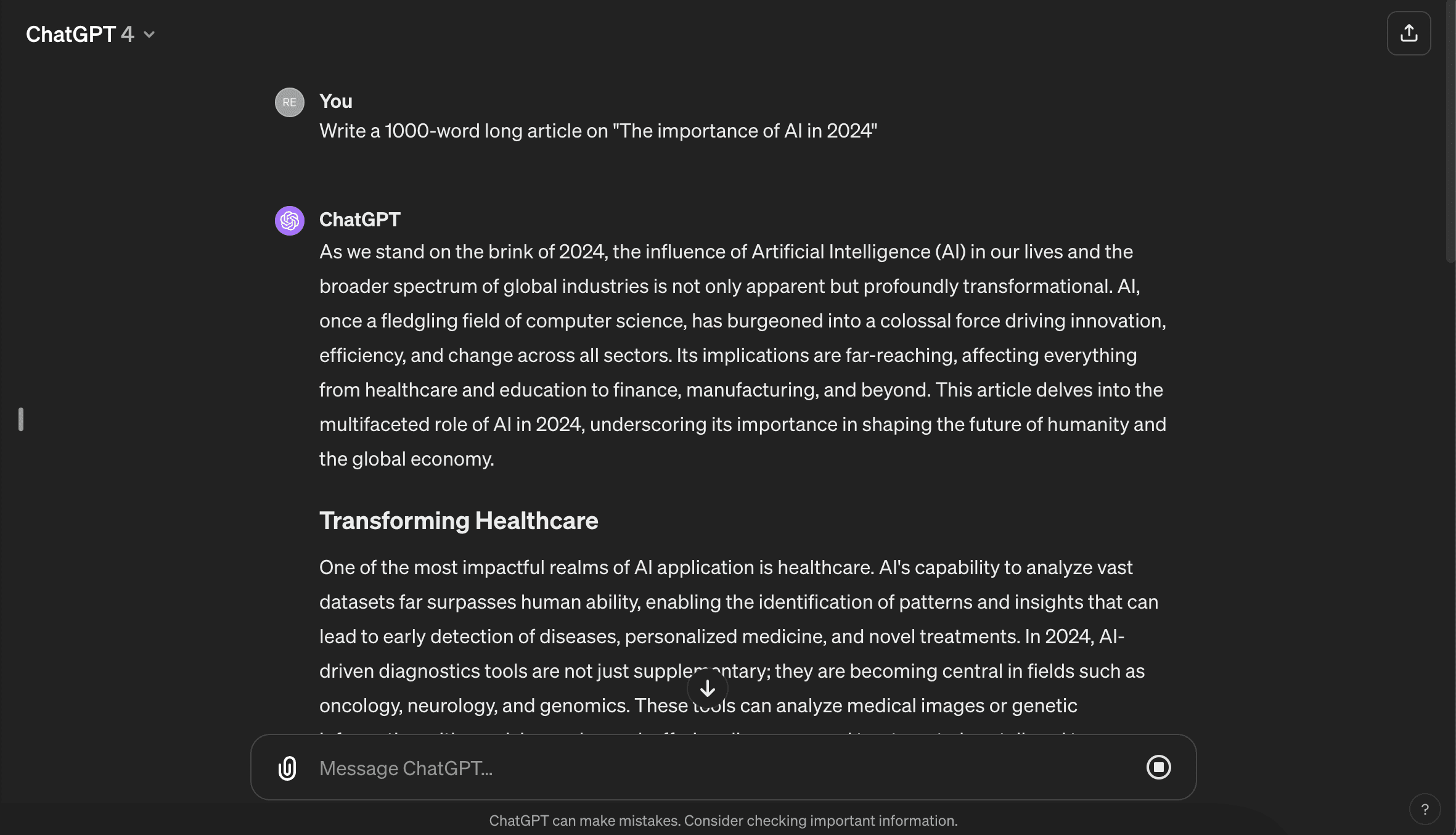
AI in User Experience (UX)
According to Deloitte:
“61% of customers will stop buying from a company if a competitor offers a better user experience.”
But while several years ago, it was enough to have a mobile version of your website and clear navigation, now customers demand more.
They want personalization, and AI could offer them that:
Personalization: Machine Learning algorithms can analyze a user's browsing history, preferences, and behavior to deliver a customized website experience. This includes tailored content recommendations, personalized product suggestions, and customized search results, enhancing user engagement and satisfaction.
Augmented Reality (AR): AR technologies can enrich the online shopping experience by allowing users to visualize products in their own environment before making a purchase.
Voice Search Optimization: Natural Language Processing (NLP) technologies enable websites to optimize for voice search, making them more accessible through voice-activated assistants like Amazon's Alexa, Google Assistant, and Apple's Siri.
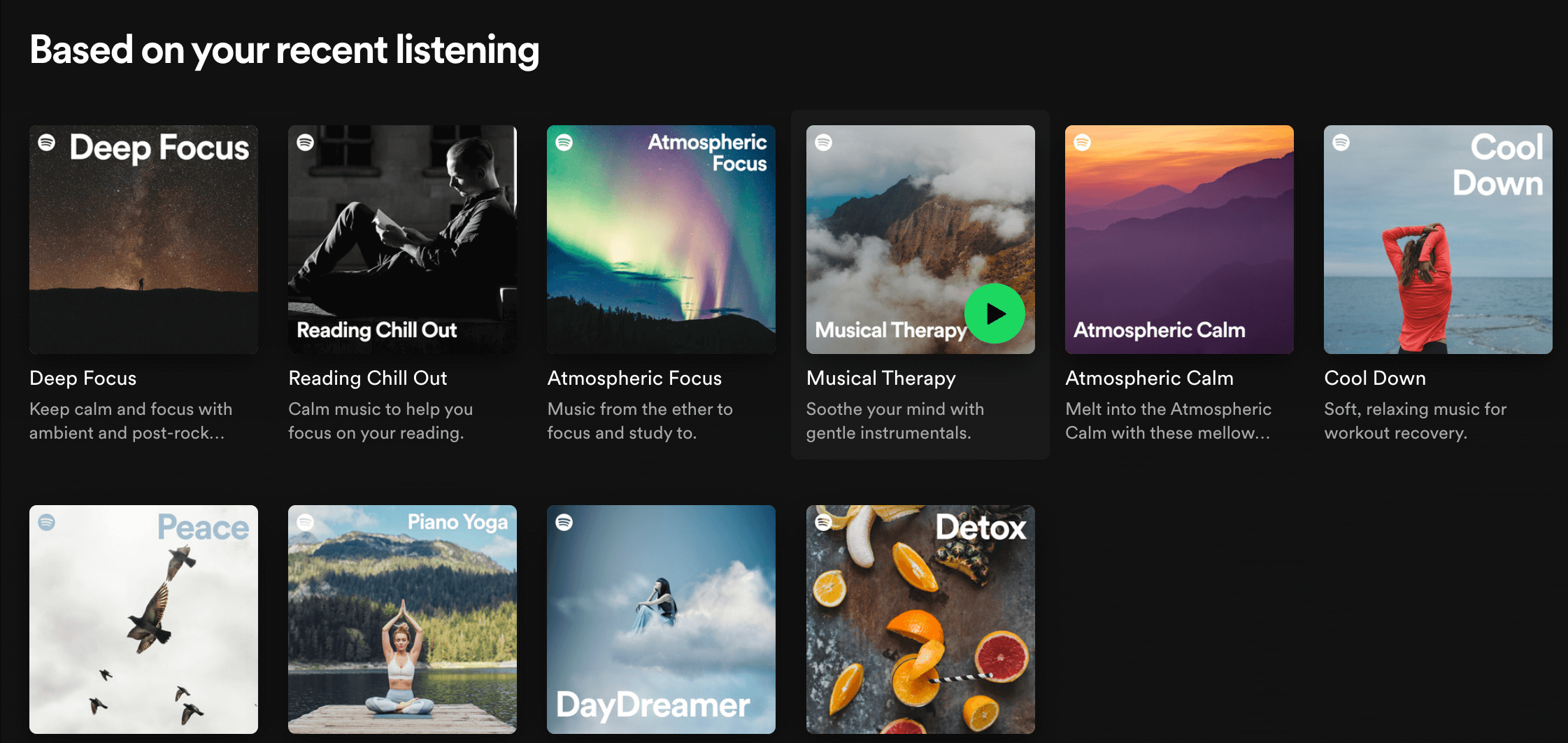
Spotify uses machine learning to provide a personalized user experience
AI in page accessibility
AI has significantly transformed page accessibility by introducing several improvements that make web content more navigable and understandable for users with various disabilities:
Text-to-Speech (TTS) and Speech Recognition: AI-driven TTS engines provide high-quality, natural-sounding voice options that convert text content into spoken word, helping visually impaired users or those with reading difficulties to access written content. Similarly, speech recognition allows users to navigate and interact with websites through voice commands, making the web more accessible to users with physical disabilities.
Image and Video Recognition: Through computer vision, AI can analyze images and videos to automatically generate descriptive alt text for visual content, which is essential for screen reader users.
Predictive Text and Auto-Complete: AI enhances predictive text and auto-complete functionalities, assisting users with mobility or cognitive impairments by reducing the amount of typing required and making digital interactions quicker and less frustrating.
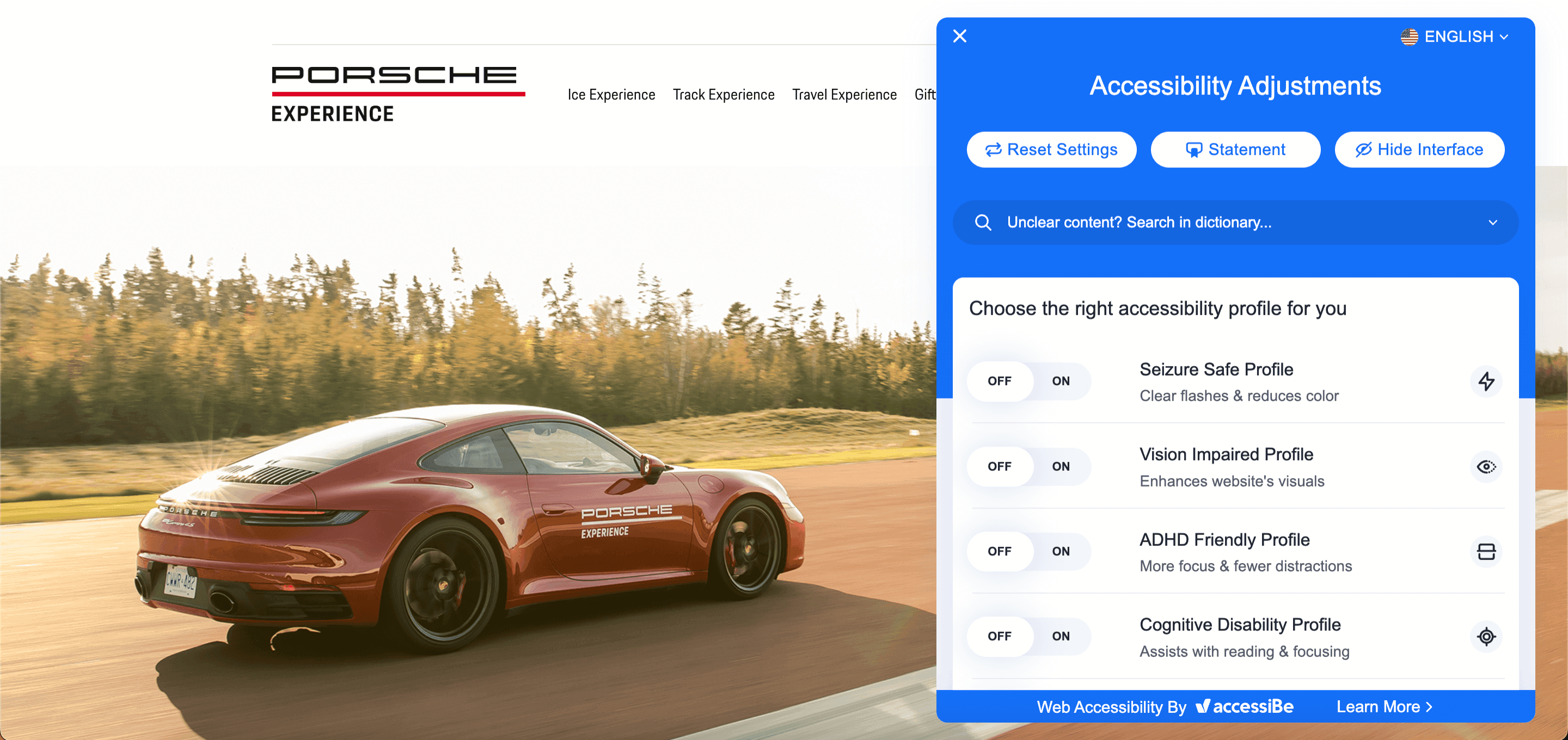
5 AI-Powered tools to implement in your website optimization strategy
Artificial Intelligence can sound both exciting and intimidating. Before you start, you are eager to try all the latest technologies to boost your business results.
However, at some point, you are faced with the question:
How can I actually integrate AI on my website?
When it comes to page optimization, the number of solutions you can pick from grows by the day.
Here, we’ve collected our best choices:
1. Uxify for web performance
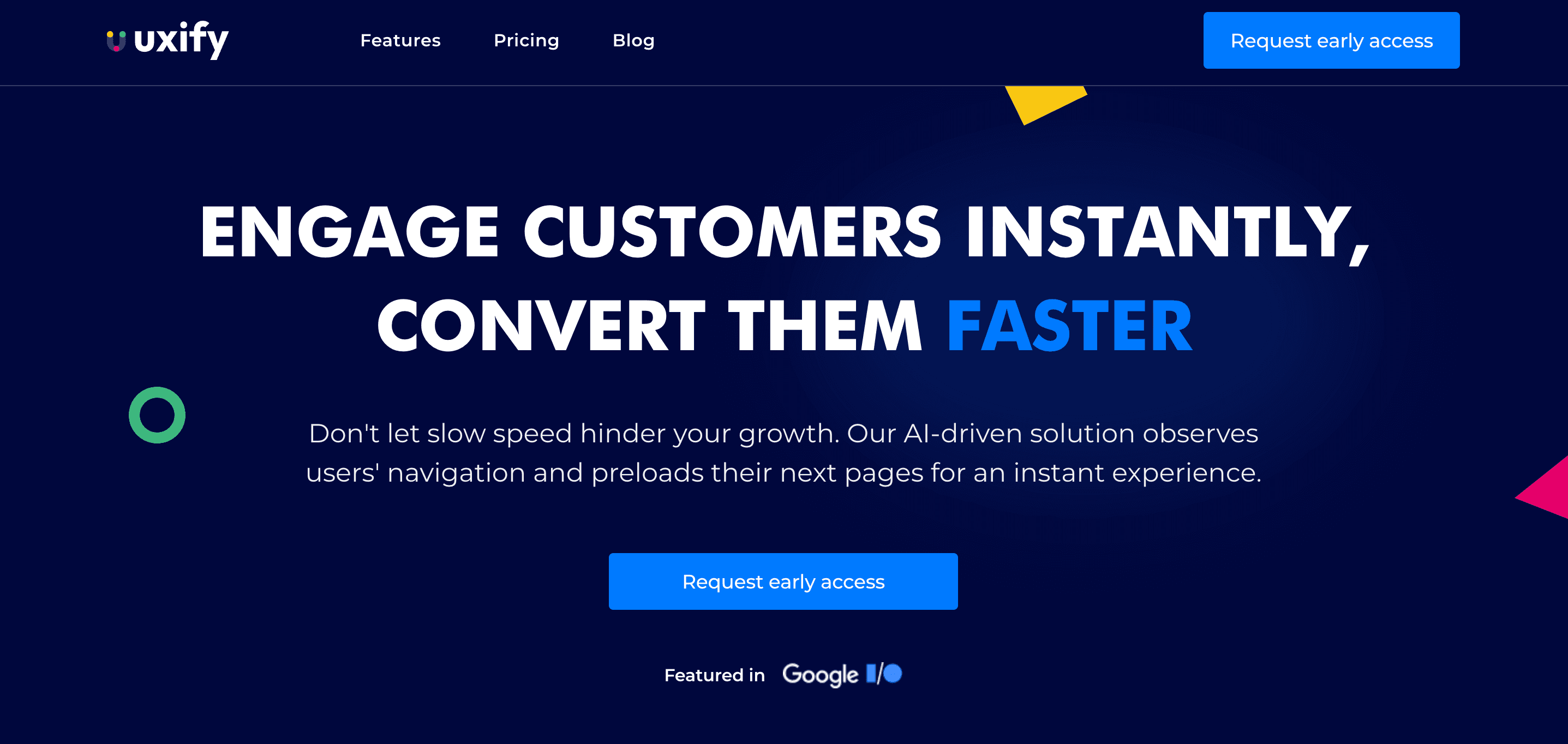
Navigation AI by Uxify is an AI-powered web optimization solution that actively analyzes and predicts user behavior to prerender entire pages during the customer journey.
This platform-agnostic technology integrates seamlessly with leading platforms like Shopify, WordPress and Wix. It empowers site owners to deliver instant browsing experiences to their users on both desktop and mobile, boosting customer engagement and conversion rates.
Navigation AI applies AI-enhanced initial predictions on page load based on data. Then, it analyzes the user behavior, adjusts the predictions, and instructs the Speculation Rules API to prerender (or prefetch) a page before the next click happens.
This predictive page loading leads to the following:
Loading times under 3 seconds.
Massive improvements in LCP (Largest Contentful Paint) and CLS (Cumulative Layout Shift)
Better Core Web Vitals for the entire website.
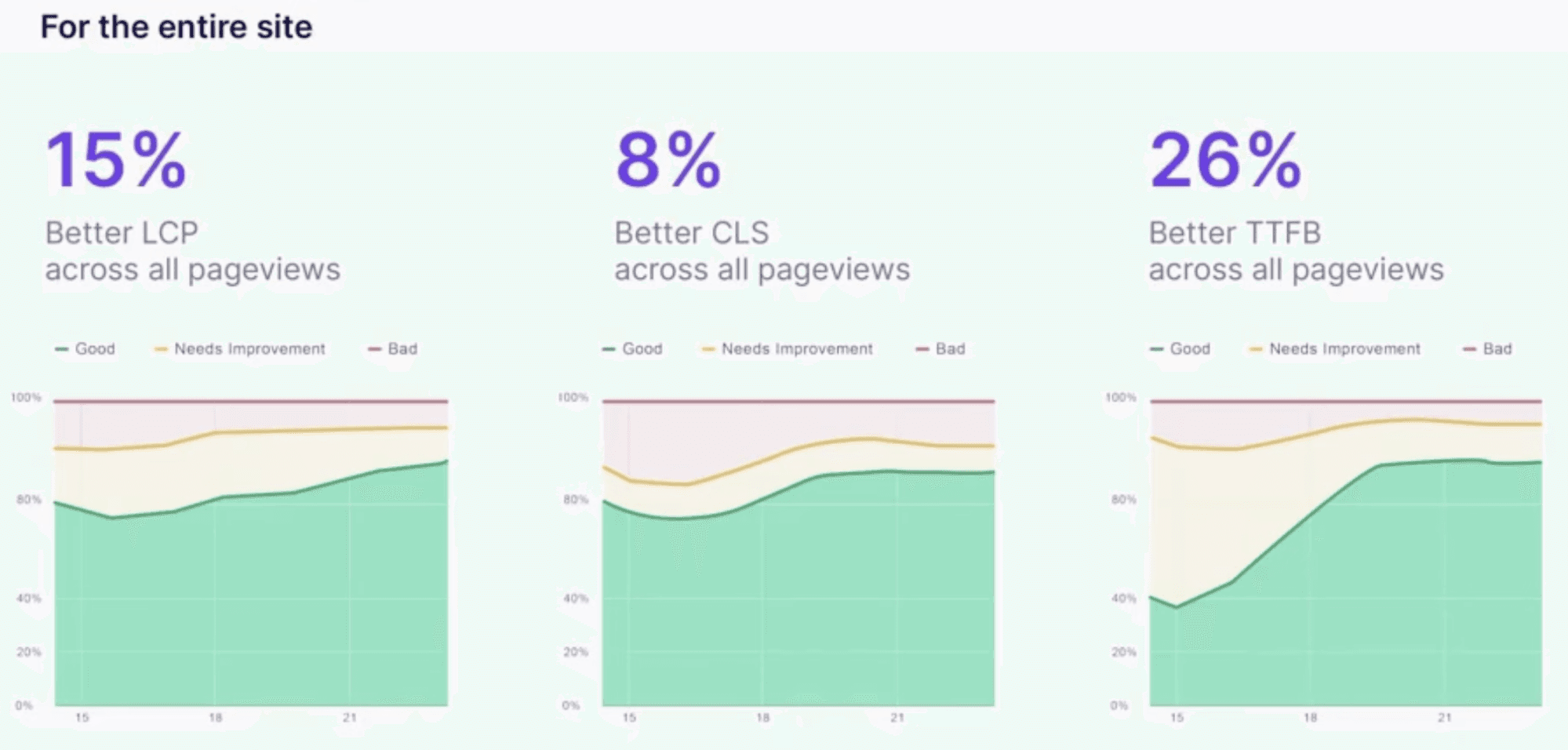
2. Frase.io for SEO
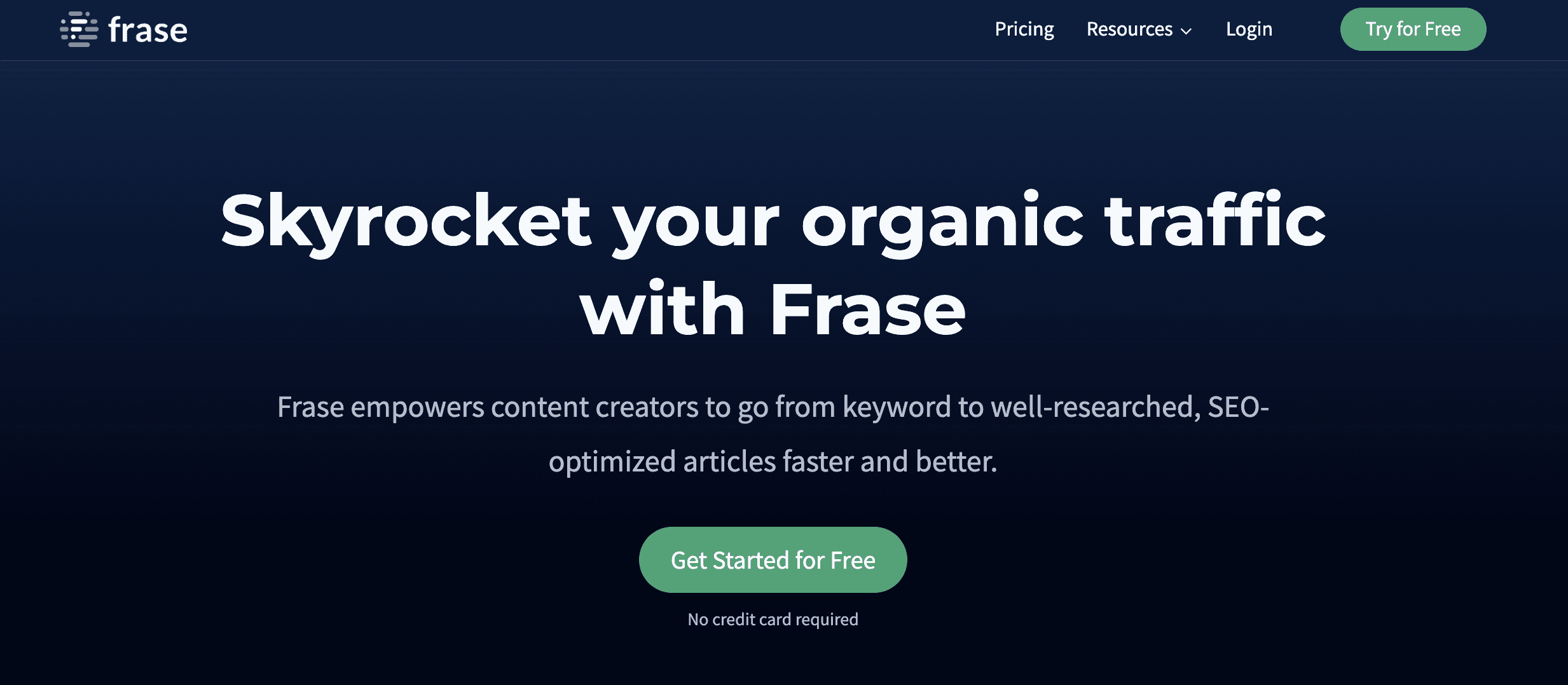
Frase.io is an AI-powered content optimization tool designed to assist content creators, marketers, and SEO professionals in streamlining content creation and enhancing their SEO efforts.
Leveraging natural language processing (NLP) and machine learning algorithms, Fraser.io analyzes and optimizes content for specific keywords, topics, and questions, making it easier for users to produce content that is both engaging for readers and favorable for search engine rankings.
What you can do with Frase.io:
Analyze SEO competitors’ content easily
Use AI to generate full-length, optimized content briefs
Generate controlled outputs like blog intros, high-converting copywriting formulas, FAQs, headings, and more.
3. Plerdy for User Experience
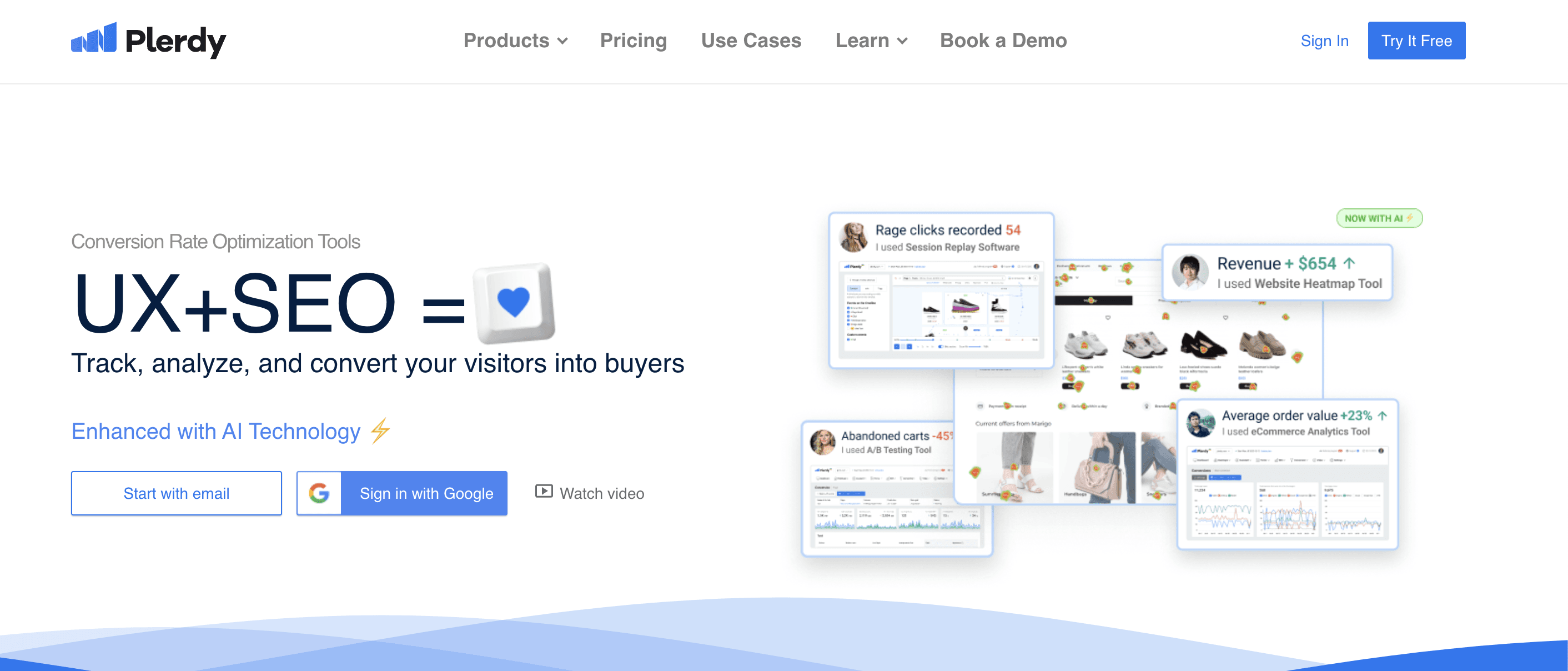
Plerdy’s AI UX Assistant harnesses a wide array of metrics, offering insightful conversion rate optimization (CRO) advice to boost conversion rates and optimize user interaction.
This innovative tool translates raw data into actionable insights, offering detailed analyses of UX elements and providing targeted recommendations for enhancements. It generates comprehensive reports to be shared with clients or team members, facilitating collaboration and driving web performance optimization efforts.
4. accessiBe for page accessibility
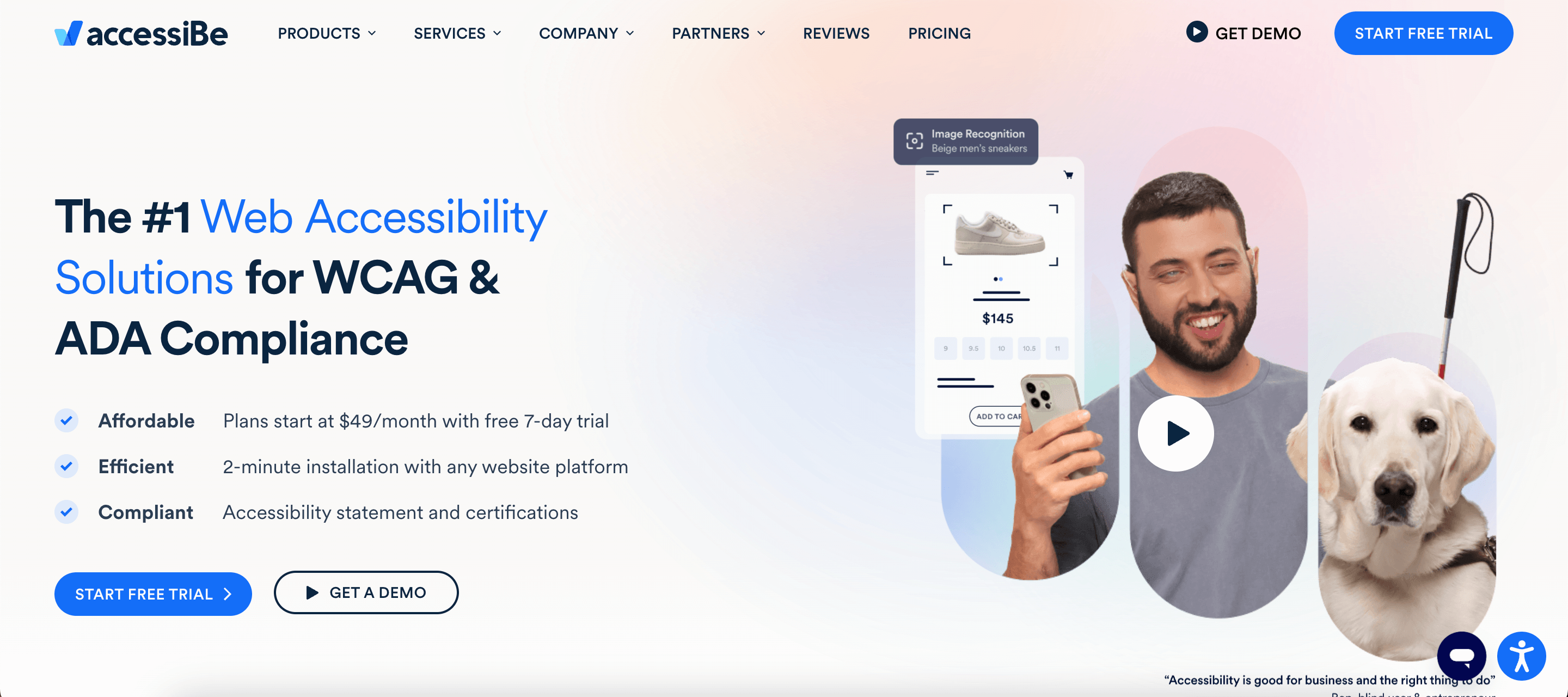
accessiBe is a company that provides numerous solutions that empower businesses of all sizes to take the inclusive approach and comply with ADA & WCAG.
The solution utilizes AI to make the web more accessible for individuals with disabilities. It achieves this through several key AI-driven features:
Contextual Understanding AI Technology: accessiBe's AI analyzes websites, understanding the function and purpose of elements by comparing them with millions of similar instances. This enables the AI to make accurate adjustments so that screen readers can convey the content's intended message to blind users.
Image Recognition and OCR AI Technologies: The platform scans website images, automatically providing elaborate alternative texts when Alt attributes are missing. This feature allows screen readers to accurately describe images to visually impaired users.
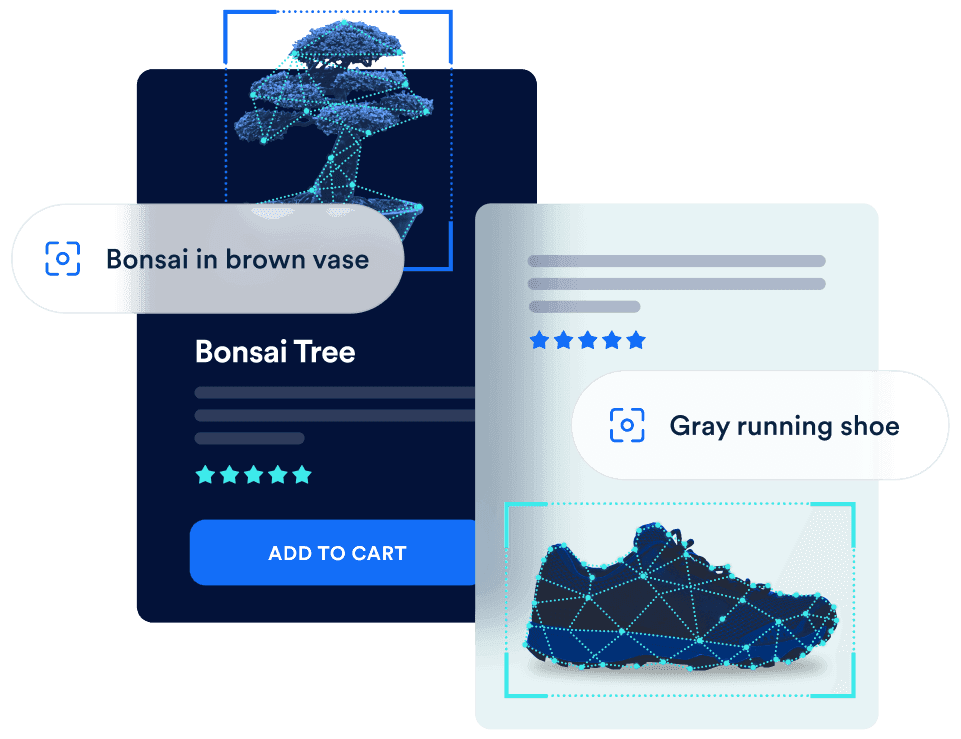
accessiBe’s image recognition and OCR AI technologies
Continuous Compliance Maintenance: accessiBe's AI regularly rescans websites to ensure ongoing compliance with accessibility standards. This is crucial as websites are dynamic and constantly updated, which can affect their accessibility.
5. Bonus: Klaviyo for marketing automation
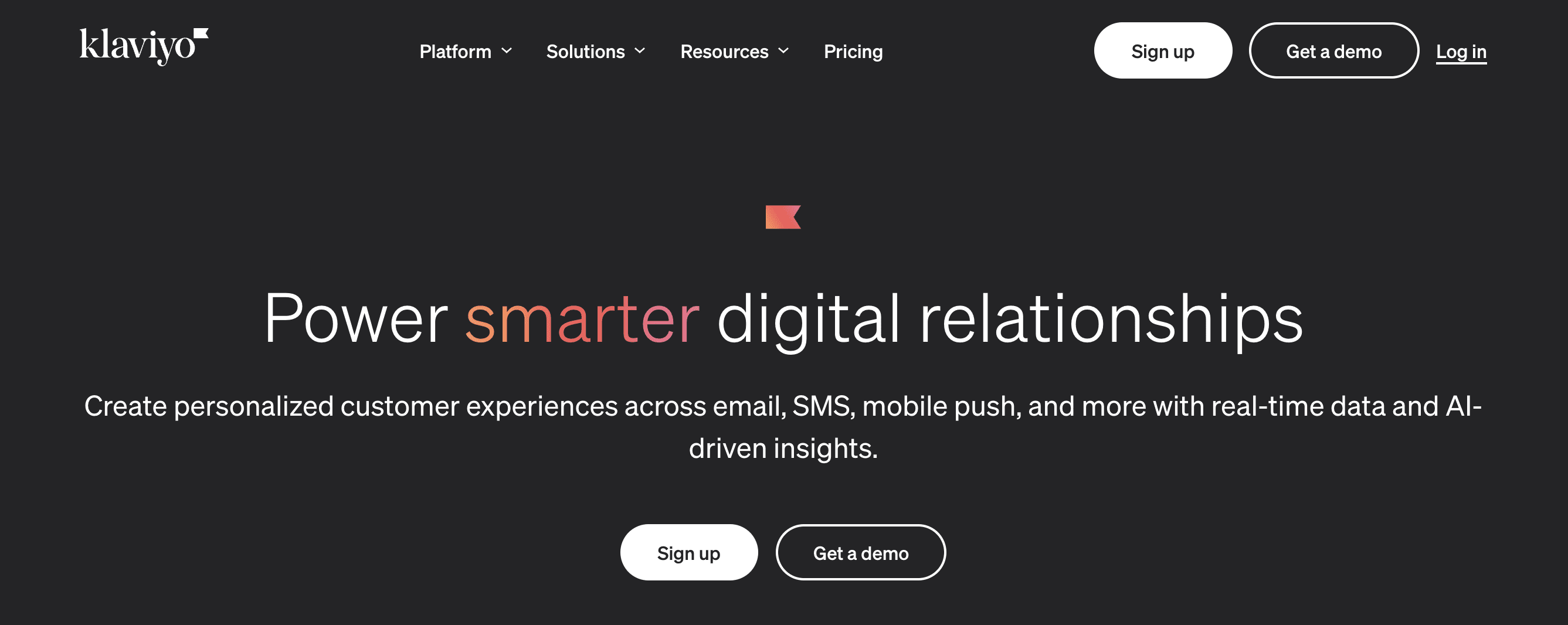
Klaviyo is the go-to solution if you want to create personalized customer experiences and automate your marketing efforts for faster business growth.
Among a long list of features, the company also offers Klaviyo AI –– an AI-driven solution that uses machine learning algorithms to analyze vast amounts of customer data, such as past purchase behavior, browsing history, and engagement patterns.
This analysis helps in predicting future customer behavior, segmenting customers more accurately, and personalizing content at an individual level.
For example, Klaviyo AI can recommend the best email send times to maximize open rates, predict the likelihood of a customer making a purchase, and automatically generate personalized product recommendations.
FAQs
Are AI optimization tools difficult to integrate into existing websites?
Integrating AI optimization tools into existing websites can vary in difficulty. It largely depends on the complexity of the AI tool and the architecture of the website. Some AI tools offer plug-and-play solutions with minimal coding required, making integration relatively straightforward. Others may require more extensive customization and technical knowledge, especially for complex or highly customized websites.
Are AI tools worth the investment?
AI-powered optimization tools can be highly cost-effective, particularly in the long run. They can automate tasks, personalize user experiences, improve conversion rates, and optimize website performance, which may lead to increased revenue and efficiency. The initial costs may be high due to subscription fees and integration efforts, but the potential returns on investment (ROI) from improved website performance and customer engagement can outweigh these costs.
Do security and data privacy regulations apply to AI tools?
AI tools must comply with security and data privacy regulations, such as the General Data Protection Regulation (GDPR) in the EU and the California Consumer Privacy Act (CCPA). Compliance involves ensuring that personal data is collected, processed, and stored securely and that users' privacy preferences are respected. This includes obtaining user consent before data collection, providing transparent information about data usage, and implementing robust data protection measures.
UX Content Expert
Table of contents
No headings found on page

